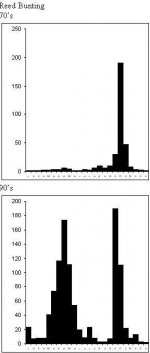Hi Adey,Adey Baker said:Hi Suricate
Hopefully, many birdwatchers do do something as well as become armchair critics.
It may not be immediately obvious from some comments on various threads, but many birders do get out and about in their own areas and report their sightings to their local ornithological society.
These may not be headline-grabbing statistics when viewed singly but they help to build up the overall picture and provide the statistics that conservation groups, etc. can use.
For instance, in an area where I birdwatch regularly a number of fields were left fallow, last winter. As well as attracting up to 4 Stonechats, which was an excellent local record, the numbers of Meadow Pipits built up to something like 4 or 5 times the best previous local totals.
A local birdwatcher to this particular area has sent in many records over literally decades so when the records for those large numbers of Pipits were submitted there is some data there to compare them with.
This is just one example for one small area but it does indicate what can be done by each individual without having to tackle the whole problem. I'm sure many birder could report similar stories from thir own experiences.
Adey
Please accept my apology if you thought I was directly pointing the finger at birdwatchers being armchair critics.
I know a great many birdwatchers and when given time I do enjoy it myself.
But I cannot understand how on a site set up for bird discussion is there so much apparent hatred and discrimination against certain species.
I respect all bird species and have been directly involved with many species both native and exotic. I have flown raptors and pigeons have kept and bred many species.
But it does seem that when an opinion differs that then the crass remarks begin or the thread is moved.
I consider myself very fortuanate as I work with wildlife 365 days a year and our website received over 2,000 calls in 2003 regarding injured birds, from across the world.
This very thread is supposed to relate to the decline of farmland species, but once again it has stopped on pigeons and raptors and I could expect that this topic will soon be stopped. Once again a serious issue will not get the experienced input that it could have.
Farming practices are just the tip of the Iceberg we need to address the new problems facing all species of birds, but without discrimination and listening to others.
Suricate






